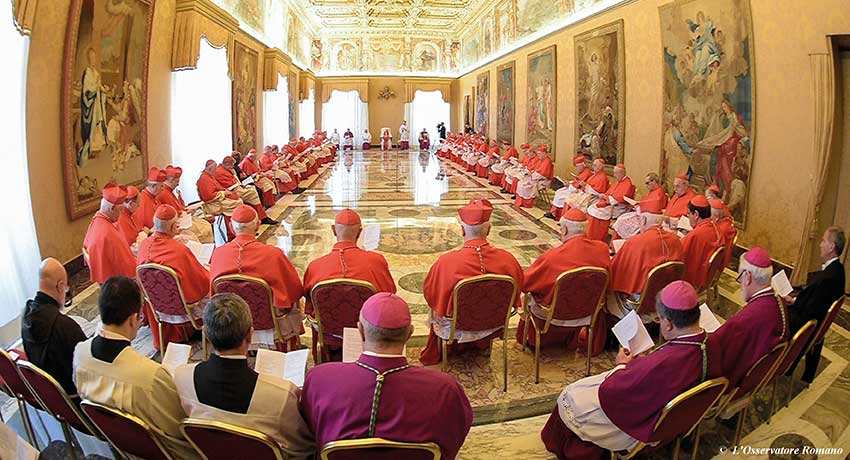With the approval of the Pope Francis’ the new products have been disseminated "Norms on the administration of the assets of the Causes of beatification and canonization."The new laws, which have repealed those dating back to August 20, 1983, established under the pontificate of John Paul II, will be in force. They will be in force ad experimentum for three years.
In the letter in which, with the signature of the Cardinal Secretary of State, the decision is reported, the renewed role of vigilance that will be exercised by the Apostolic See is immediately emphasized so that all the causes that arrive in Rome - after the closing of the diocesan phase - do not suffer obstacles or brakes due to too high expenses and fees. These rules, therefore, affect the correctness of the administrative management and the transparency of the various acts that lead to the inscription of a Servant of God in the book of saints. Whoever proposes a Cause of beatification and canonization - diocese, religious congregation, institute, etc. - must constitute an economic fund in which all the offerings and contributions received for the support of the same cause will converge. In the same sense, it should appoint an Administrator of this "pious cause fund", a function that can also be carried out by the Postulator General.
Among the tasks that correspond to the new figure are those of scrupulously respecting the intentions of those who have offered donations for the cause; keeping regularly updated accounts, and drawing up annual financial statements - both preventive, before September 30, and consumptive, until March 31 -, which must then be approved by the so-called "Actor", that is, by the proposer of the cause. Once approved, these balances must also be sent to the Postulator. In the case of General Postulations - as is typical in religious orders - it is specified that they must keep separate accounts for the different causes.
Another novelty introduced concerns the supervision of the administration of these goods, which will be exercised, depending on the case, by the diocesan bishop, the major superior, the episcopal conferences or, where foreseen, the Apostolic See itself. This supervision will extend to all economic movements concerning the cause, as well as to the revision and approval of the annual balance sheets.
The highest supervisory authority remains the Congregation for the Causes of Saints, which must be informed in a timely manner and can request financial information and documentation at any time, as well as verify the balances acquired. The control will also include the respect of the fees and the various expenses according to the rates established by the same Congregation for the Roman phase of the cause.
Whoever, for whatever reason, does not respect all these rules or commits abuses of an administrative-financial nature may be sanctioned by the Congregation, as provided for in the Code of Canon Law (alienation of ecclesiastical goods, extortion, corruption).
A further innovation concerns the constitution of a ".Solidarity Fund"In addition to the free offerings, the Congregation will receive any leftovers from the various causes, once the canonization has been celebrated. It will be destined to support those causes which, having reached the Roman phase, find it difficult to support the costs of the process. It will always be at the discretion of the Congregation to accept possible requests for contributions from the proposers of causes, which must always be supported by the bishop and, in any case, by the competent ordinary.
The contributions that the proposers must enter for the Roman phase of the causes are established by the Congregation and communicated to the Postulator, and then must be entered at different times, depending on whether it is recognition of martyrdom or heroic virtues, or recognition of the presumed miracle.








